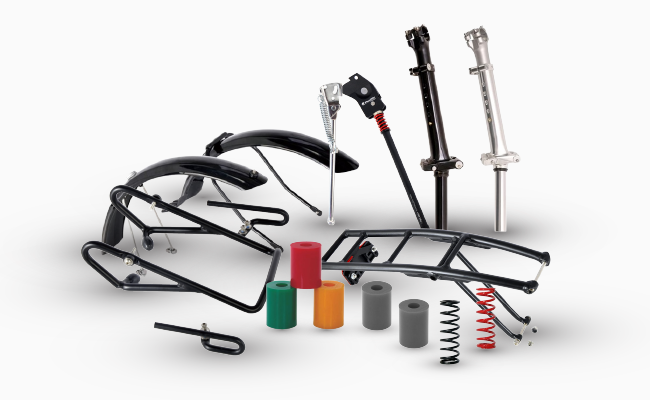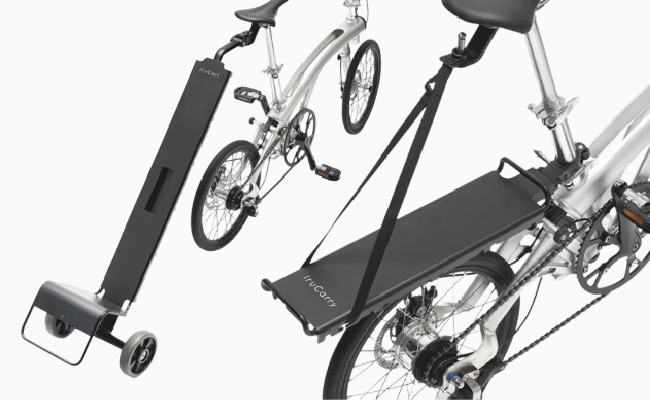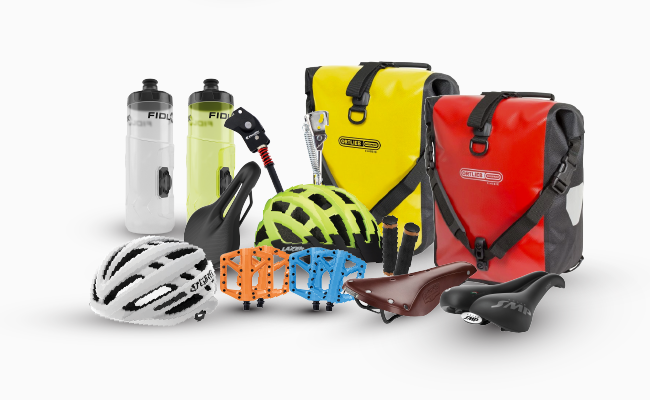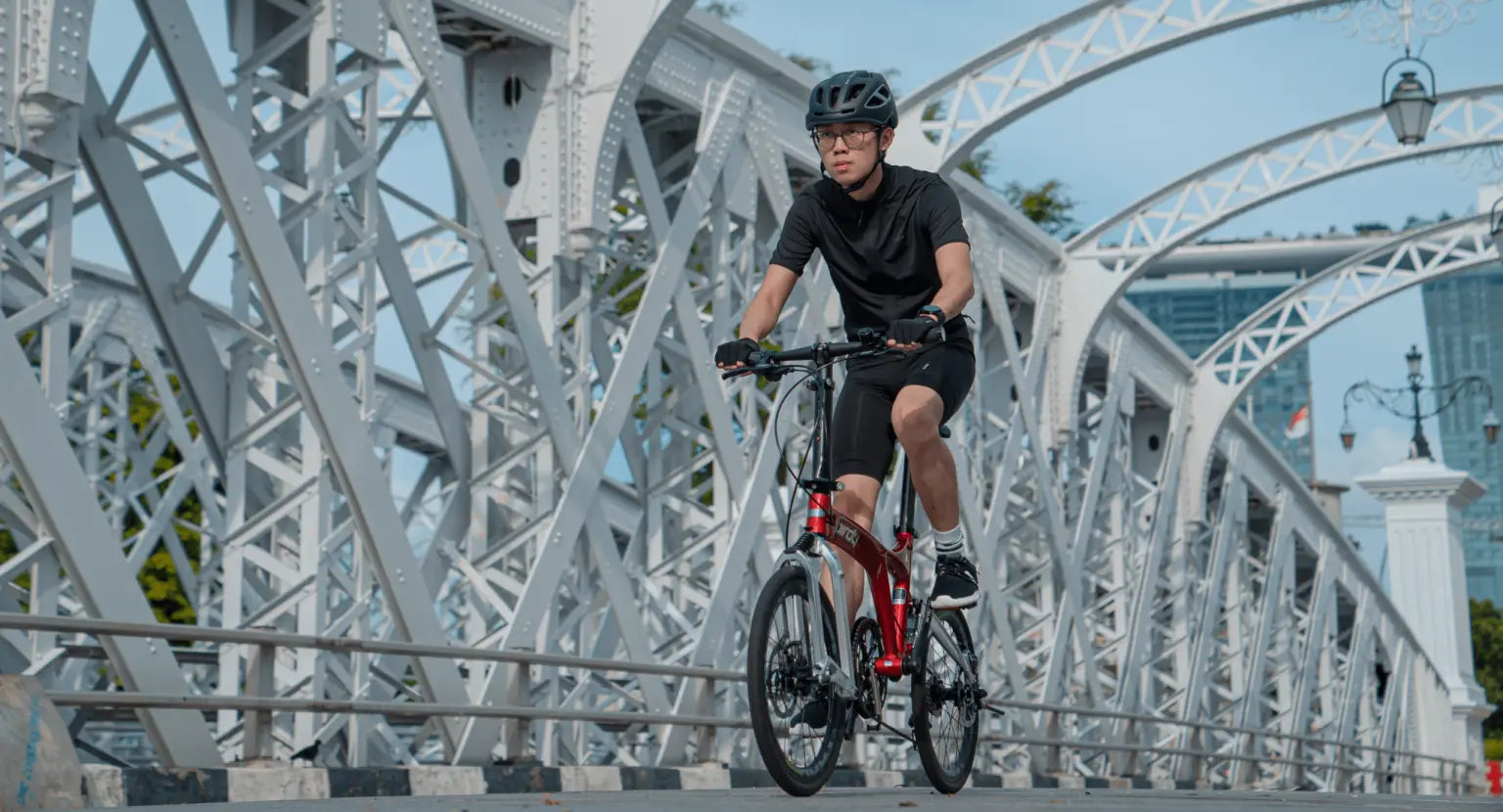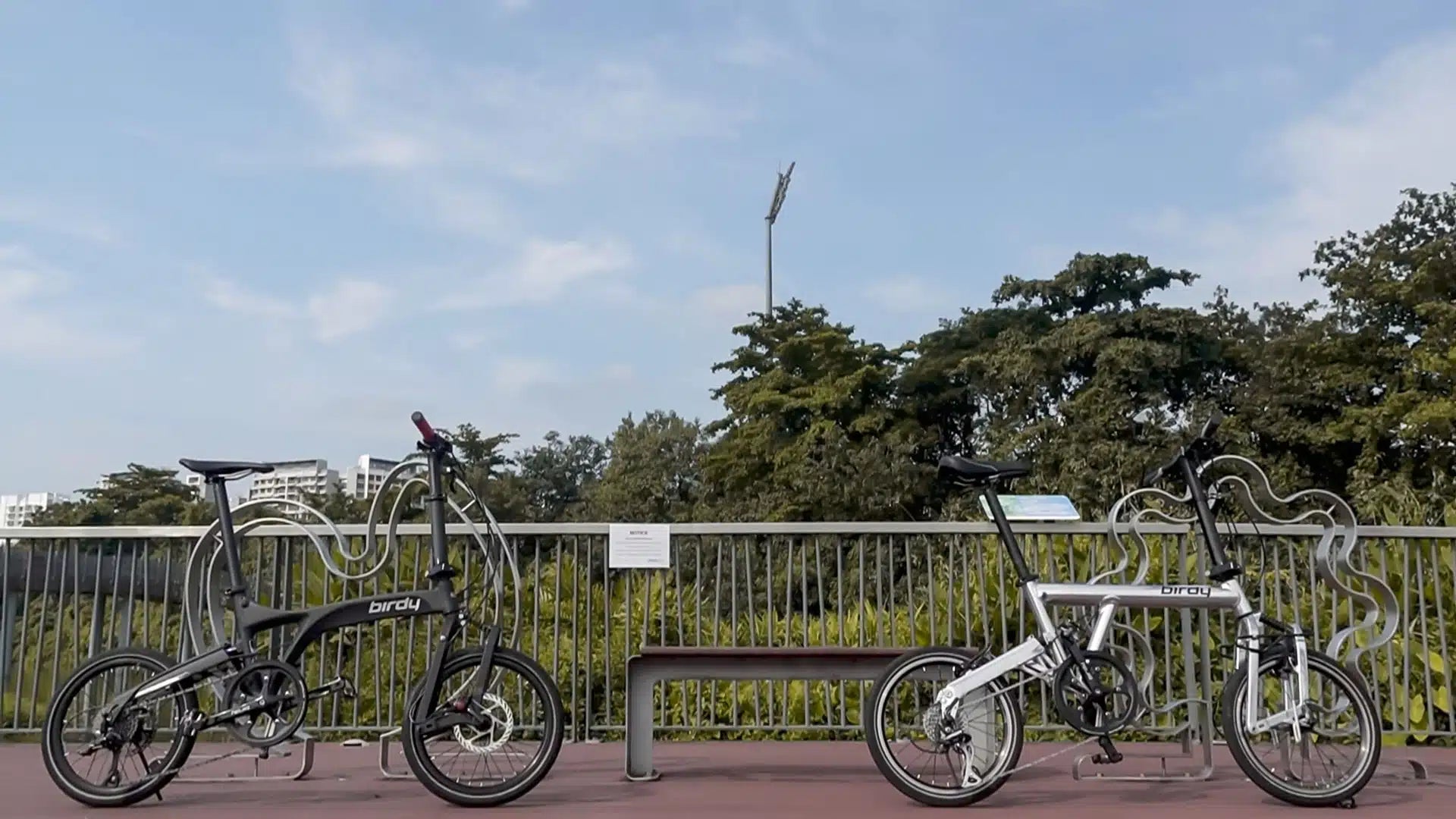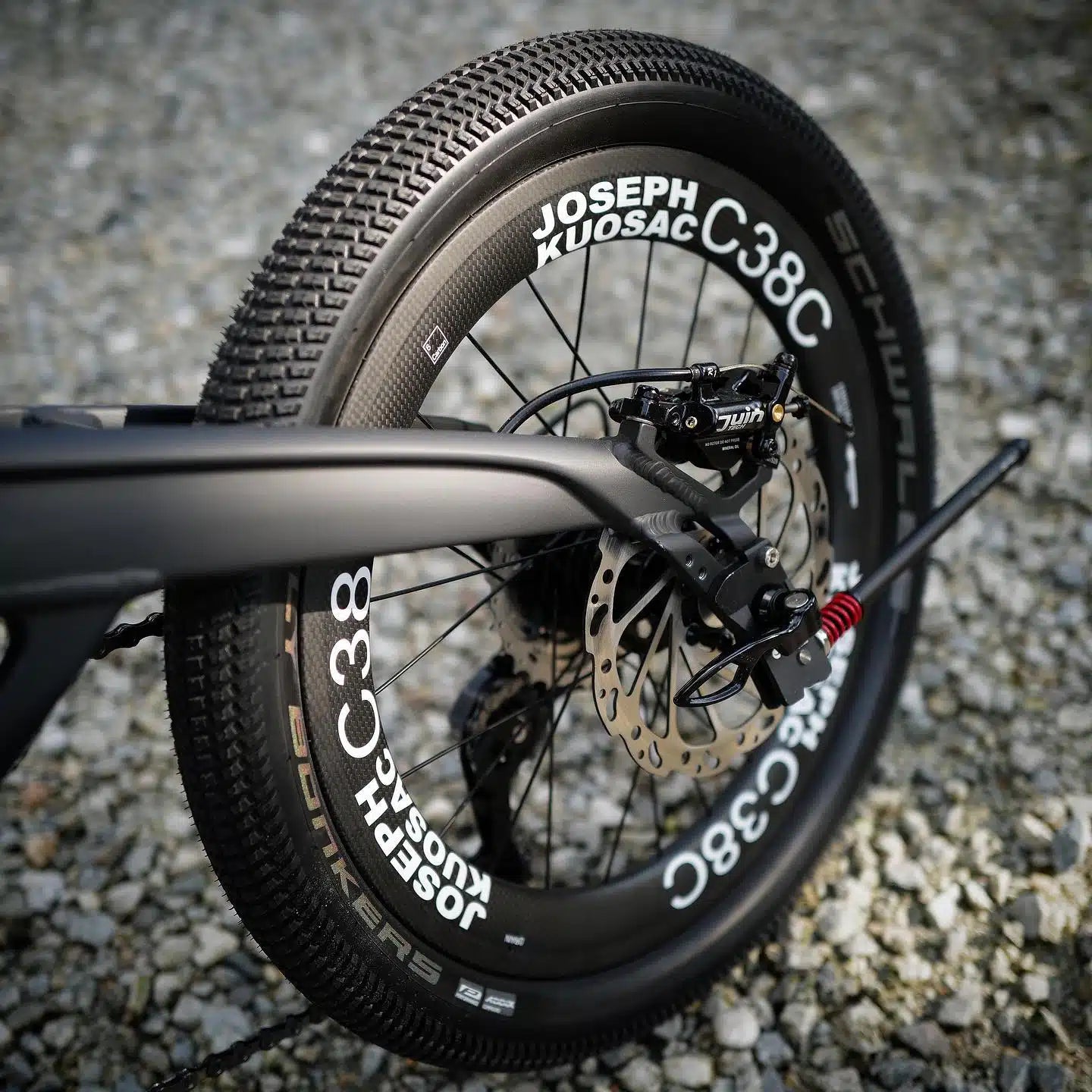
Birdy JK-11 Road or Birdy JK-11 Gravel – Which should I get?
Question: Can the Birdy JK-11 Gravel cycle on this ground?
Answer: Definitely.
So what exactly is a gravel bike? Gravel bikes are gaining popularity quickly in recent years with their versatility on different terrain. They are designed for endurance riding and exploring a wider range of terrain, including forested areas.
Purpose of the JK-11 Gravel
Why the JK-11 Gravel then? We now know that gravel bikes are designed to make our off-road adventures comfortable, reliable and fun! But the JK-11 Gravel folding bicycle adds on a fourth aspect – spontaneity! Touring with the foldable JK-11 Gravel allows for more spontaneous adventures as you can bring it around Singapore to cycle anywhere and everywhere. The JK-11 Gravel is well equipped with various components to handle all types of terrain, from city paths to off-road trails and even trails on Coney Island or the Green Corridor.
Transportation of your foldable bikes has never been an issue with us here at Mighty Velo, Singapore’s premier folding bike shop. Weighing only 11.5 kilograms, this aluminium-bodied foldable bike can be carried onto public transport with ease. Driving to your cycling spots has never been easier with the Birdy models and you can even fit TWO Birdy JK-11 Gravels in the car to BOOT – pun intended.
POP QUIZ! Are the Birdy JK11 Gravel and the Birdy JK11 Road similar? Is one better than the other? Which one should I get? We already know that the Birdy JK11 Road can eclipse the Birdy R20 as the fastest Birdy bike ever. But how about on rougher terrains that require more grip? Situations like this would make riding on the JK11 Road an uphill battle, right? To answer these questions, let’s take a look at the two models.
Similarities between the JK-11 models
Let’s first tackle the similarities of both bikes. Both models include a Joseph Kuosac wheel kit and an 11 speed derailleur, hence the name JK11.
The Joseph Kuosac carbon rims are lighter than traditional alloy rims on the other Birdy models, separating this batch from the flock of Birdys – pun intended. In terms of how riding feels, carbon rims are stiffer and provide more support when cornering.

The next similarity is the Shimano Ultegra groupset. Both JK11 models are equipped with this top-of-the-range 11 speed Ultegra R8000 derailleur that is lightweight and has a smooth and reliable shifting pattern.
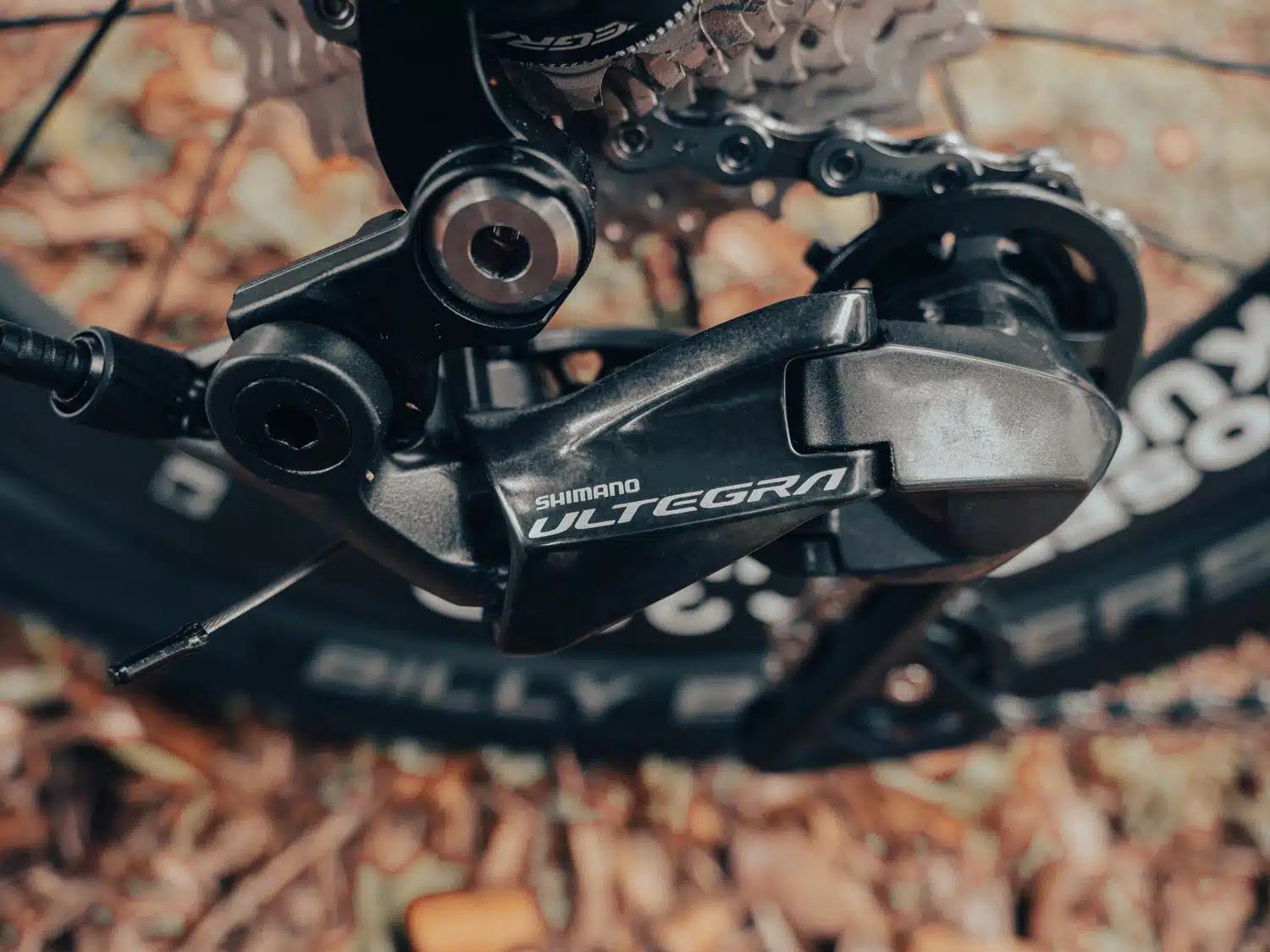
THE FASTEST – JK11 Road
Most of you would have known by now that the JK11 Road IS possibly the fastest Birdy ever created! With sleek 20” tyres and an 11 speed derailleur, the JK11 can propel you ahead of the rest. Wait, what about the Birdy R20? Well, when comparing these two speed demons, the JK11 Road takes the crown as the fastest model due to several factors.
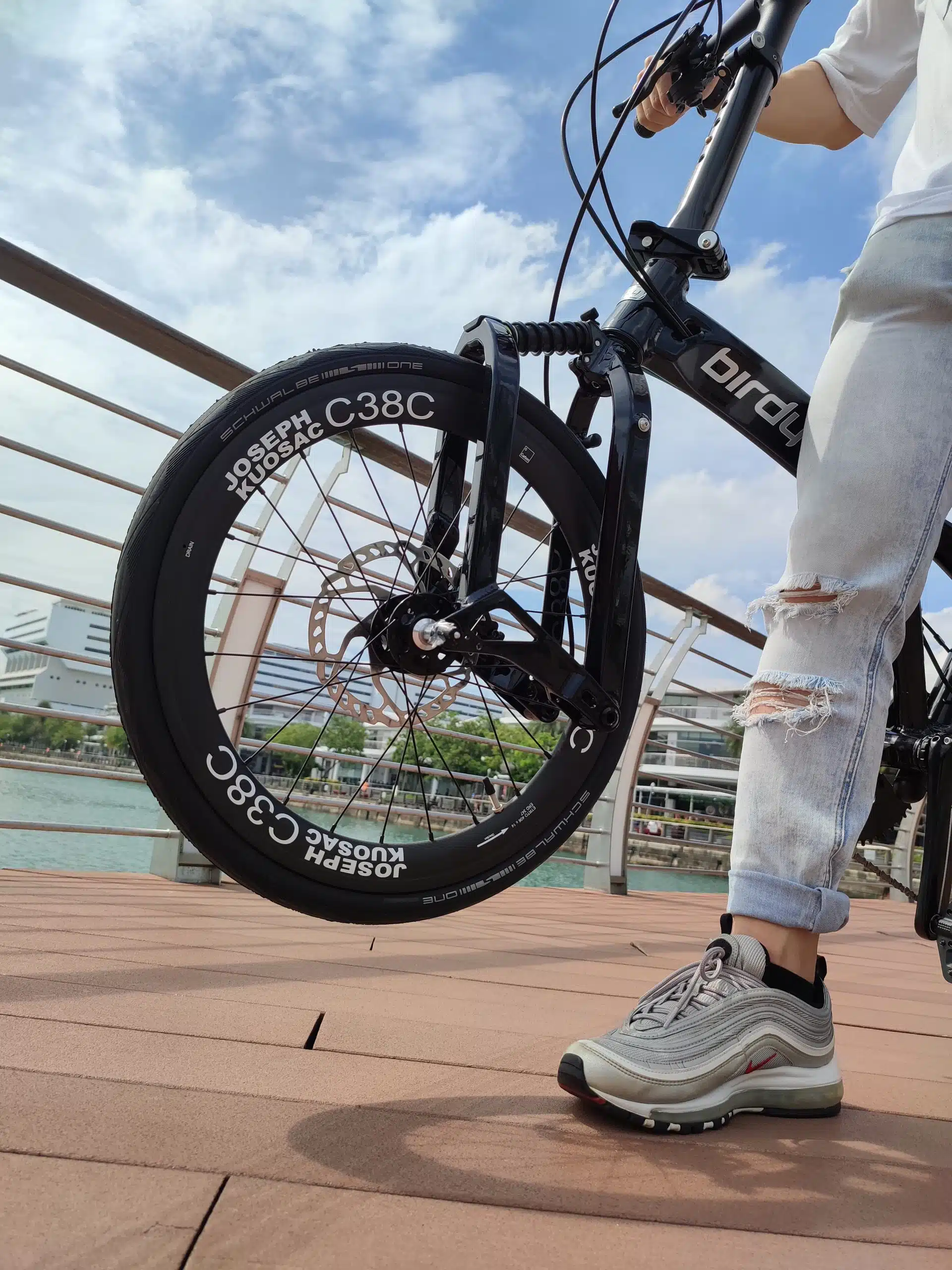
The main reason is the carbon rims. For starters, they are generally lighter than the alloy rims, allowing the bike to accelerate faster and slow down faster when braking. In terms of how riding feels, carbon rims are stiffer and provide more support when cornering. Since the JK11 Road is equipped with these Joseph Kuosac carbon rims, it takes the top spot in this battle of speed with the R20.
THE MOST VERSATILE – JK11 Gravel
Equipped with 18” Billy Bonkers tyres, the JK11 Gravel is the first Joseph Kuosac model that we have designed for all-terrain cycling! Here at MV we call it an ATB – All Terrain Bike. The Gravel would be closely compared to the other rugged model – Birdy Gravel.
The Gravel and JK11 Gravel both use different types of tyres: the Gravel's tyres have the main purpose of off-road riding while the Billy Bonkers of the JK11 Gravel is an all-rounder tyre that provides good grip while ensuring a smooth cycling experience. It is suitable for PCNs, light gravel roads, dusty and sandy areas.
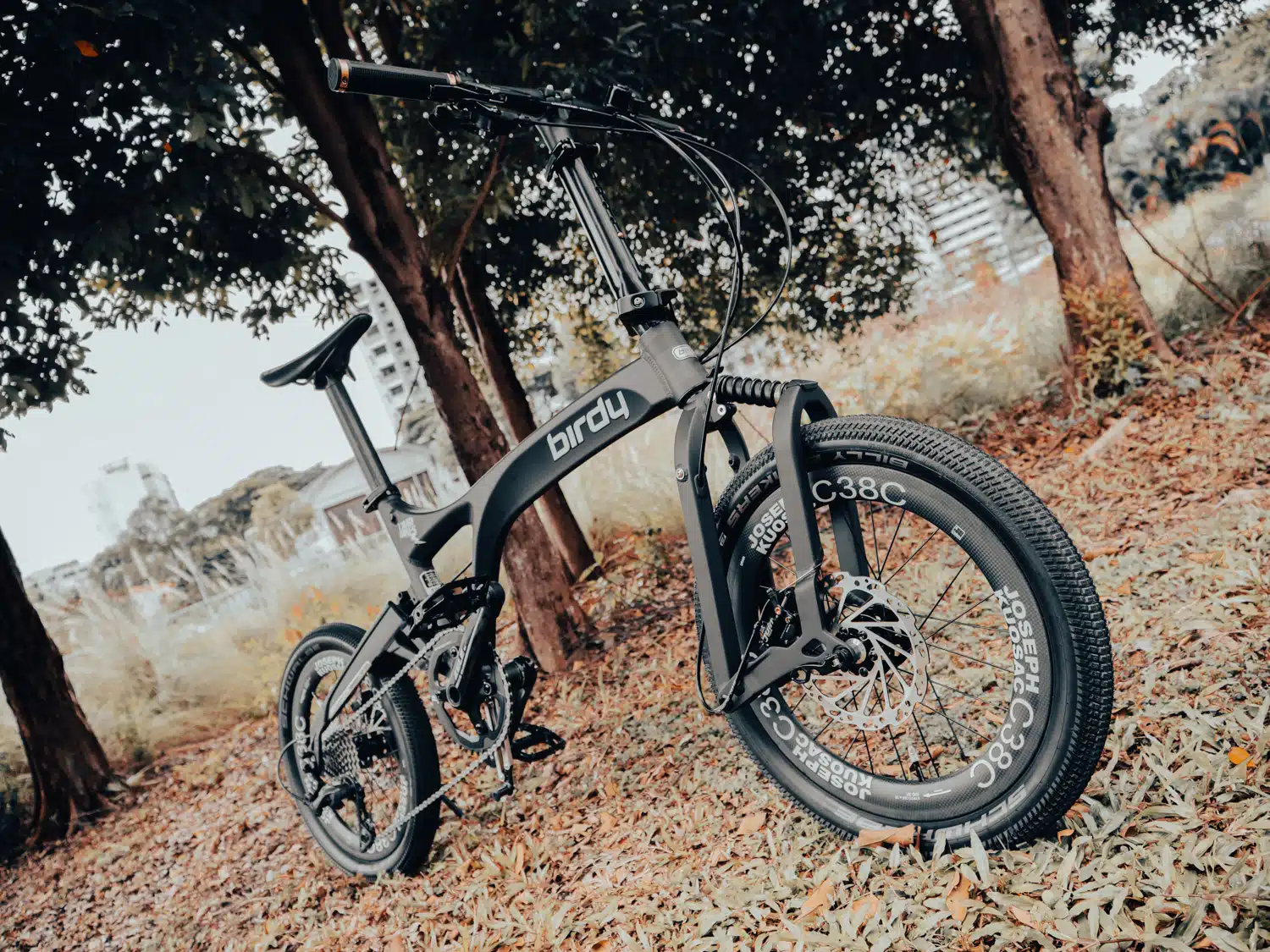
So you may be wondering: Why is the price so steep compared to the Birdy Gravel? Well the answer is simple – The JK11 Gravel has a versatile, silky-smooth Shimano Ultegra derailleur that has 11 speeds. And don’t forget the bold-looking, top-of-the-line Joseph Kuosac Carbon wheelset!
Differences between the JK11 models
Let’s not forget that these two models have their own similarities too!
Tyres
Coupled with the 20” wheelset, the JK11 Road has a pair of sleek Schwalbe ONE tyres to minimise contact and friction with the ground. This allows it to travel faster on flat surfaces, similar to that of road bikes – hence the name JK11 Road.
On the other hand, the 18” wheelset of the JK11 Gravel is paired with the all-weather, all-terrain Billy Bonkers tyres that will take you from PCN, to footpath, road and even off-road and sandy ground.
Chainring & Cassette Combo
Welcome to our MV Math lesson, where we will be focusing on the 11 sprockets on the cassette and the singular Chainring at the right side of the two JK11 models. I should warn you that this next part will include some advanced mathematical skills.
Sprockets are the smaller circular discs (with teeth) attached to the rear wheel of the bike. These sprockets when joined together are called a cassette – which are controlled while riding for adjusting to various terrain. We call this action “switching gears”, whereby a higher gear (smaller sprocket with lesser teeth) is for riding faster and a lower gear (bigger sprocket with more teeth) is for easier pedalling.
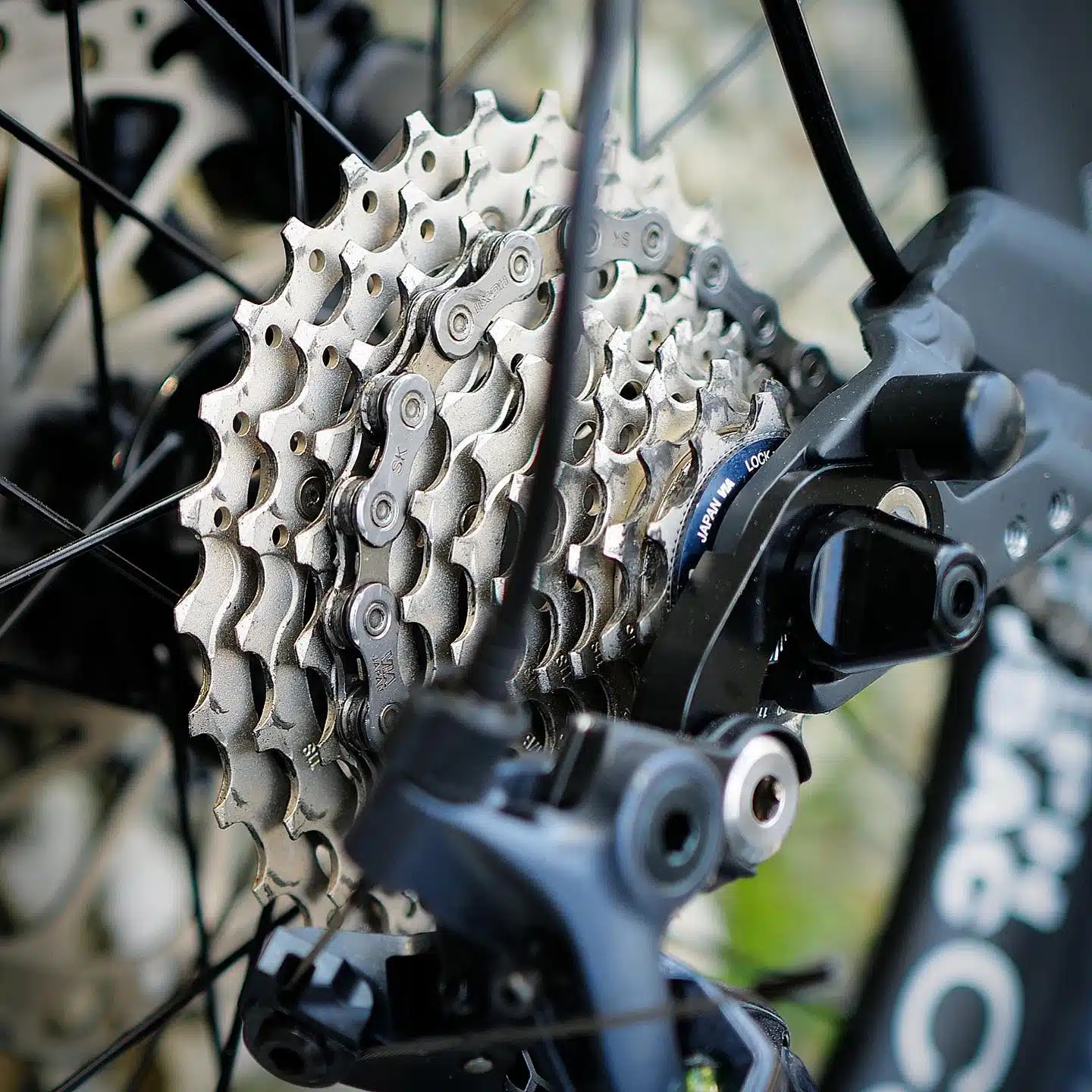
In simpler terms,
The JK11 Road has more teeth (56) on the chainring, giving it a higher speed at the fastest gear combo with the smallest gear on the cassette (11-56). This makes it the fastest Birdy model!
The JK11 Gravel has fewer teeth (44) on the chainring, making it extremely easy to ride and accelerate from a stationary position. The largest gear combo (30-44) allows riders to cycle upslopes with great ease.
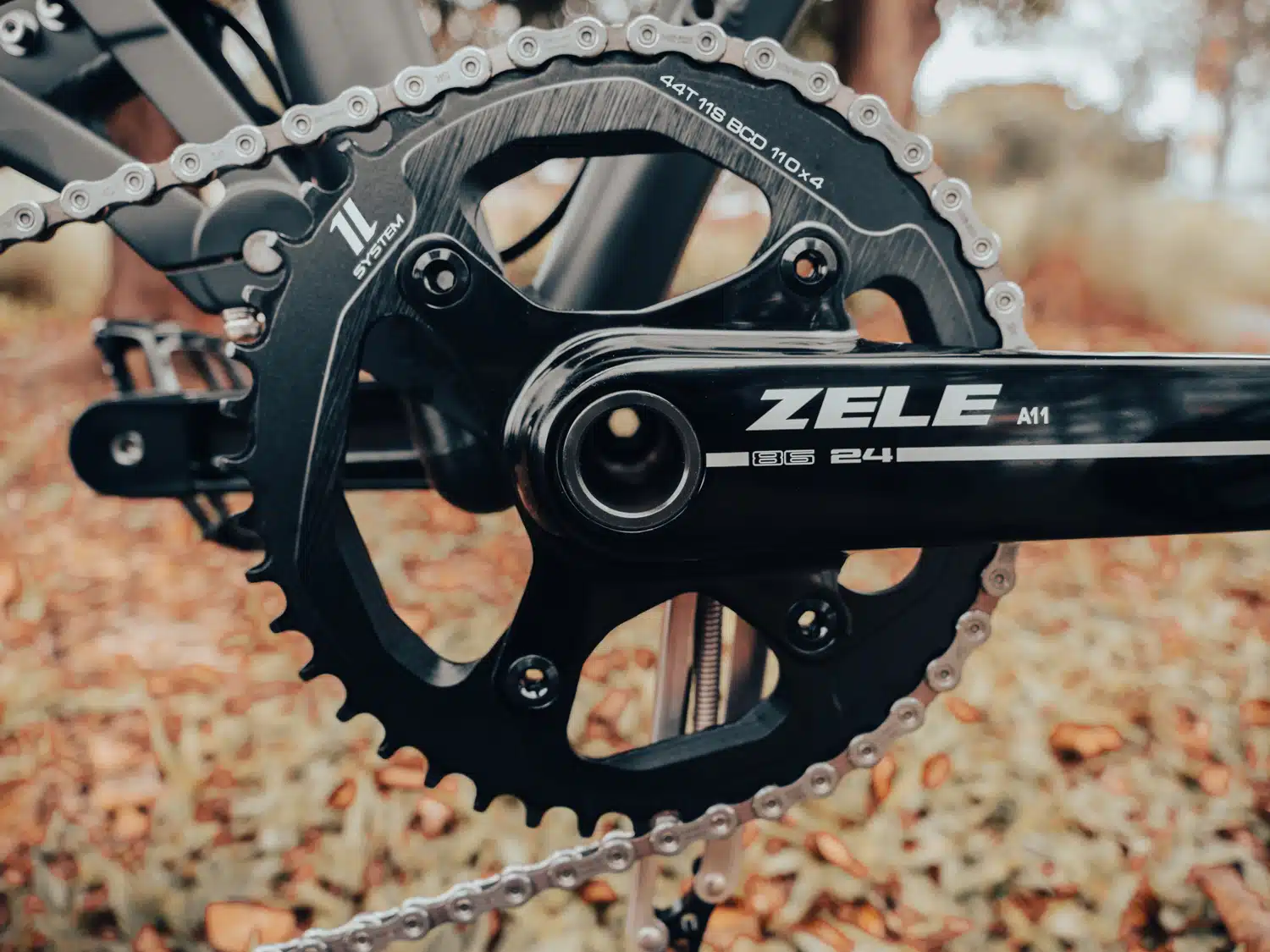
Now for the detailed explanation. I should warn you that this next part will involve some calculation.
Introducing Gear Ratio…
the number of rotations of a driven gear.
Gear ratios are derived using the number of teeth on the chainring and on the sprocket (cassette). To show how fast the JK11 Road is, let us compare it to the R20 and measure the distance each model can cover per one full pedal.
-
JK11 Road has a 11-28 cassette – 11 teeth on the smallest sprocket (highest gear) and 28 teeth on the largest sprocket (lowest gear)
- Gear ratio of 56/11 = 5.1 at its fastest (highest gear)
- This shows that for every rotation of the 56-toothed chainring, the 11-toothed sprocket will rotate 5.1 times. This also means that the rear wheel rotates 5.1 times per rotation of the chainring (one full pedal).
- Convert it into distance covered by multiplying the circumference of the wheel 1.45m: 5.1 x 1.45m = 7.4m in distance covered per rotation of the chainring.
-
R20 has a 11-28 cassette – 11 teeth on the smallest sprocket (highest gear) and 28 teeth on the largest sprocket (lowest gear)
- The R20 has a gear ratio of 52/11 = 4.7
- Likewise, every rotation of the 52-toothed chainring will cause the 11-toothed sprocket to rotate 4.7 times. Likewise, this means that the rear wheel rotates 4.7 times per rotation of the chainring (one full pedal).
- Convert it into distance covered by multiplying the circumference of the wheel 1.48m: 4.7 x 1.48m = 7.0m in distance covered per rotation of the chainring.
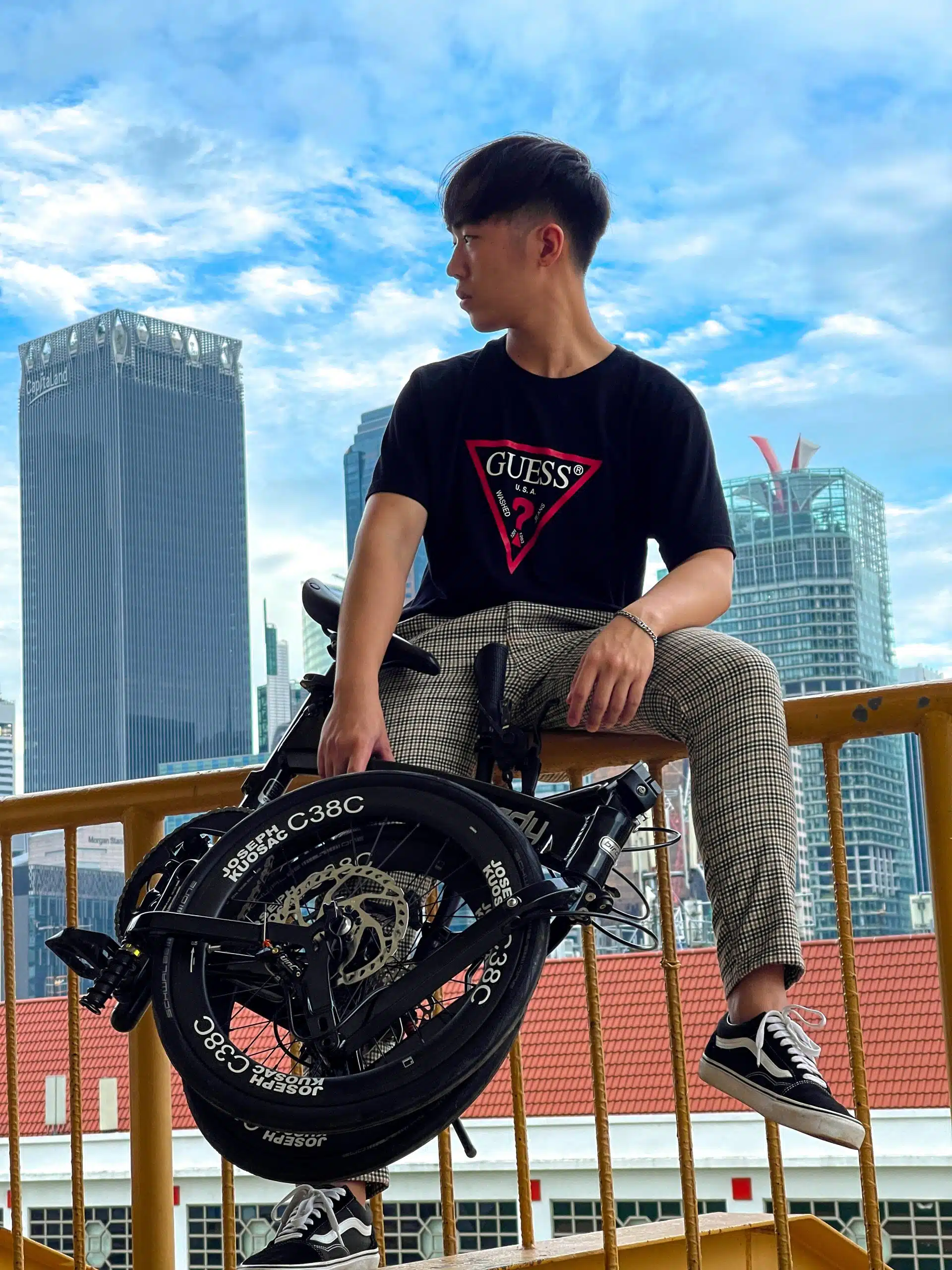
To conclude, it all boils down to the gear range of your cassette and not the number of gears. The larger the chainring; the faster you can travel in the highest gear.
Brakeset
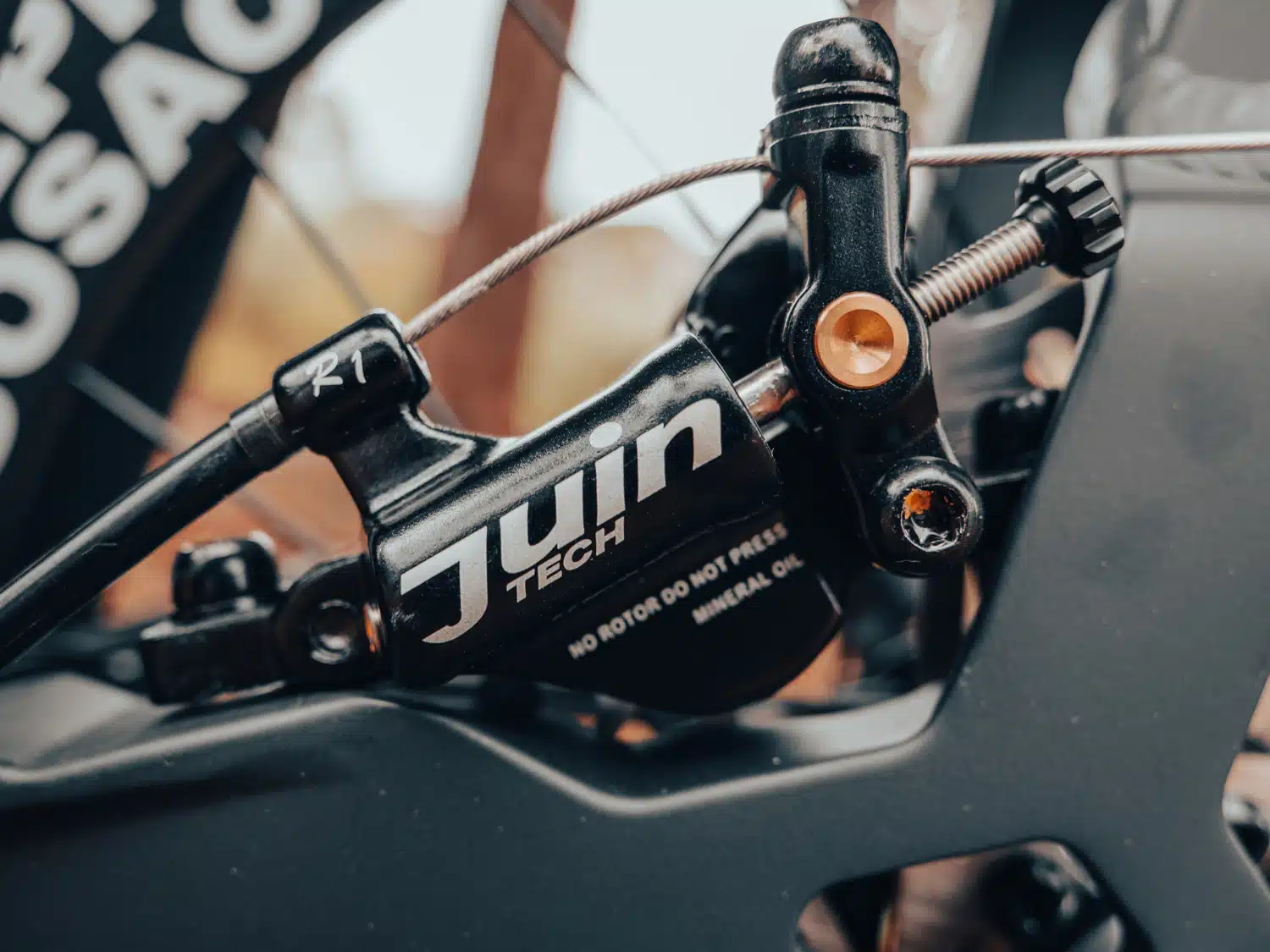
The JK11 Gravel is equipped with Juin-Tech R1 2 pistons brakes that have stronger braking power than the stock models. This is great for uneven terrain and off-road riding where control and braking speed are more important than speed.
But the Road has stronger braking power with the Juin-Tech GT which has 4 pistons brakes. The Juin Tech GT is basically an upgrade to the R1 as there are now 2 extra pistons in each caliper as compared to the R1. Hence, the JK11 Road delivers higher braking performance with its stopping force increased .
Touchpoints
Now it’s time to get fancy~ Touchpoints are usually for comfort, stability and most importantly, to look and feel good!
We’ll begin with the Grips.
In the initial launch of the JK11 Road, we equipped the Ergon GA3 grips for improved comfort when cycling long distances. The reason being that the GA3 grips are designed in a way to reduce tension on the wrists when cycling for prolonged periods.
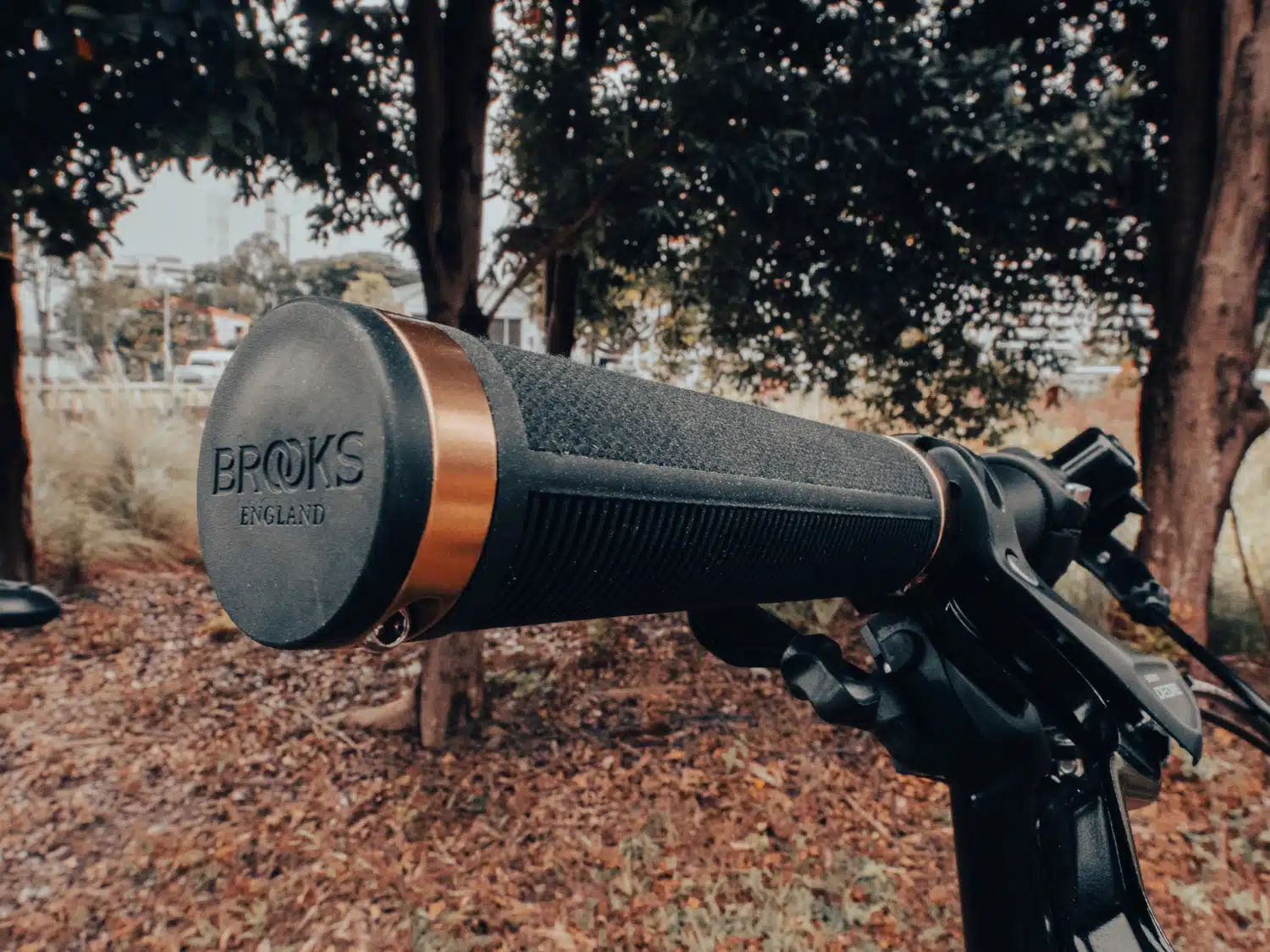
Meanwhile, the JK11 Gravel has the Brooks Cambium Rubber Grips that have excellent hold and control in all situations. Cambium is a unique rubber material fused with organic cotton for a natural look and feel
Next is the saddle.
The Road is equipped with the Brooks Cambium C17 All Weather Saddle. This cambium range of saddles make it instantly comfortable for users as compared to the leather saddles which require some breaking-in. This saddle is also versatile in all types of weather – as its name suggests.
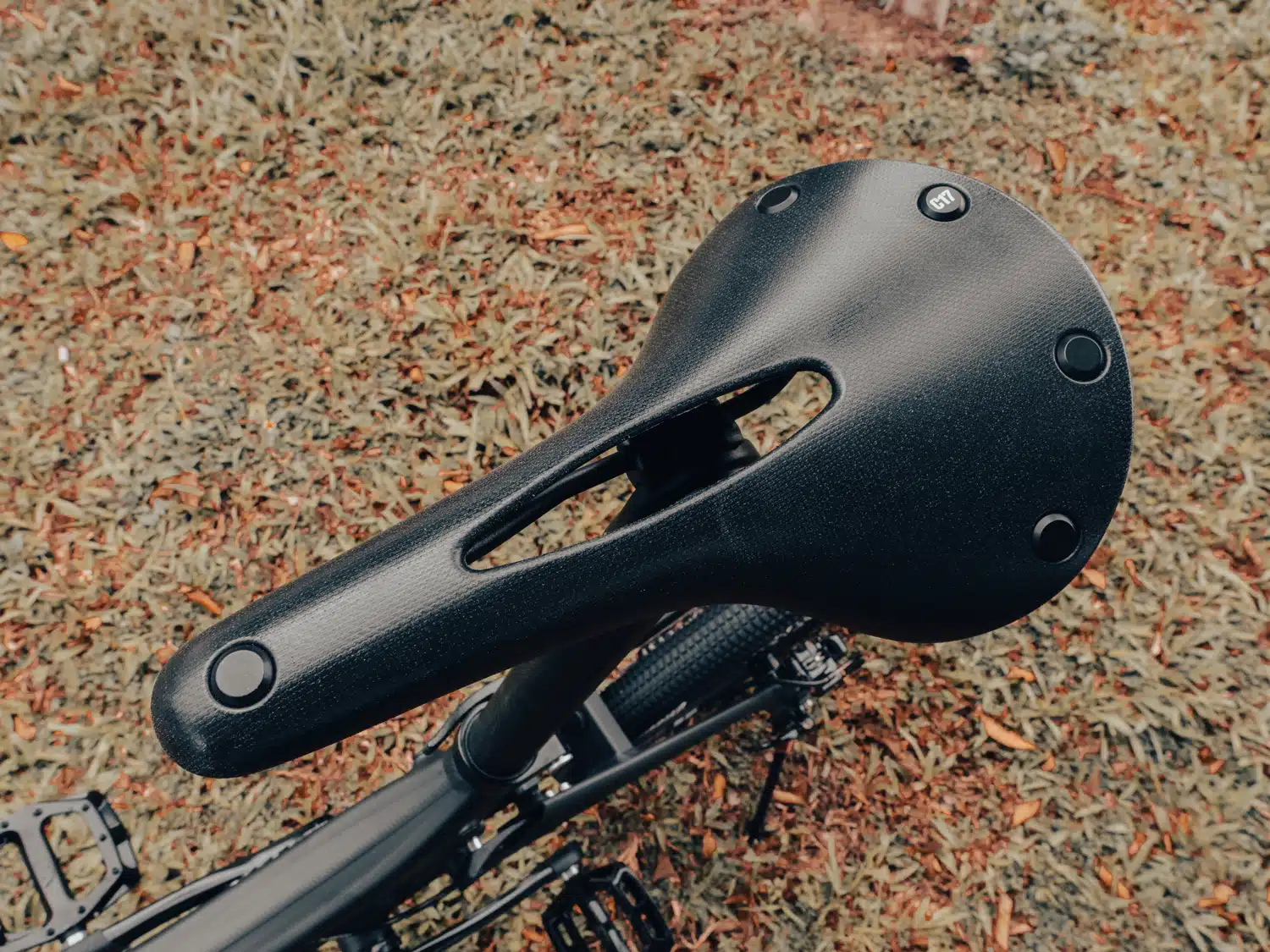
Meanwhile, the Gravel has the Brooks Cambium C17 Carved All Weather Saddle as shown above. You would notice only one difference – this is carved. What this does is relieve some pressure when cycling as the seat is more flexible, reducing anatomical discomfort. With the cambium’s natural rubber-like texture, the saddle reacts and flows to the rider’s movements as well.
Last but not least, we have the pedals.
The JK11 Road is equipped with Crank Brothers Stamp 1 Pedals in black, a reliable design in sleek matt black. The JK11 Gravel has the DMR V12 pedals in black which are robust and sturdy. Both pedals have studs on them to offer good grip and control when cycling.
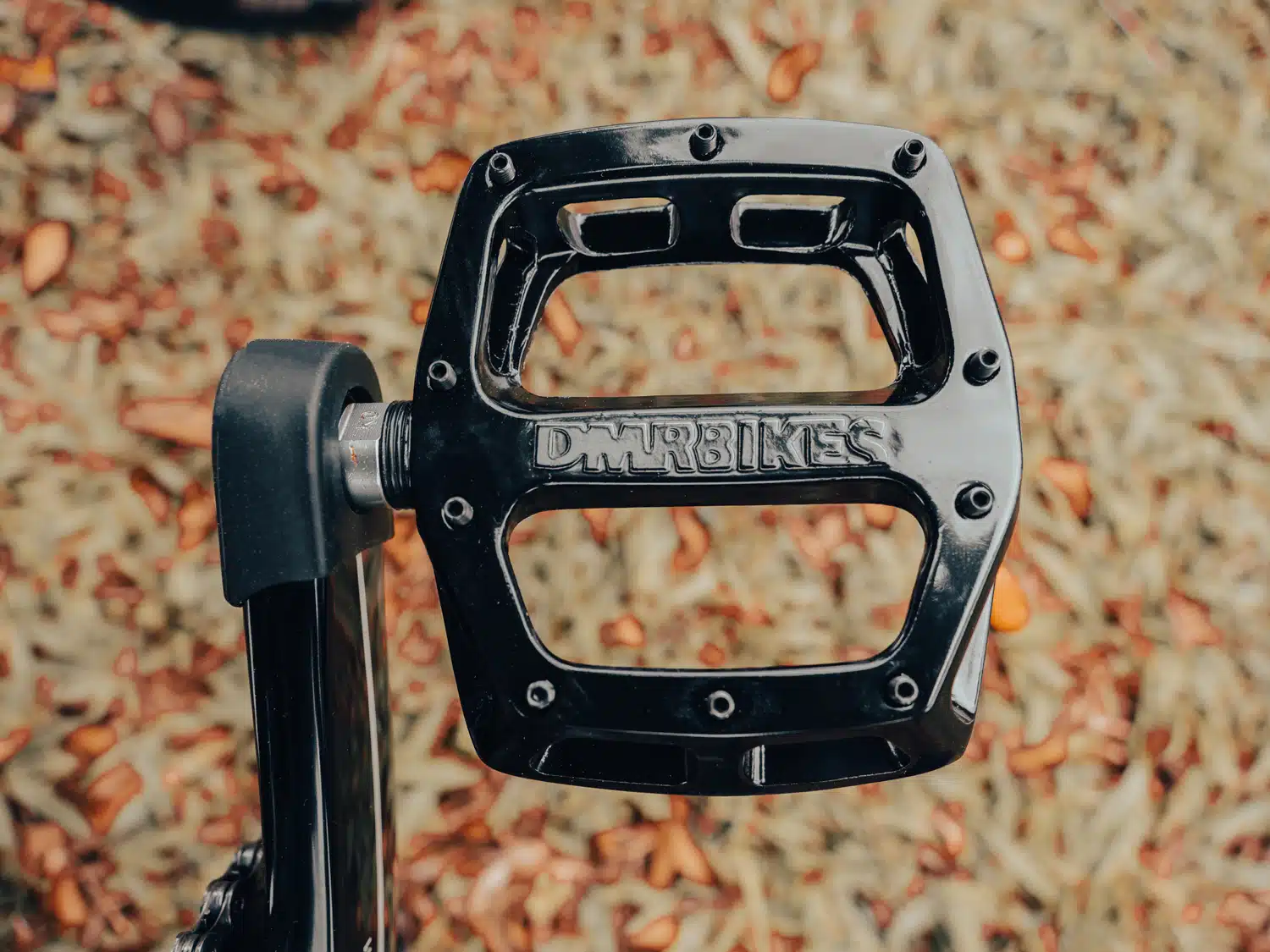
Riding Experience
Here’s my personal take on both models. The JK-11 Gravel is really easy to ride, with smooth acceleration and good control of the whole bike. The JK11 Road had more resistance when moving from a stop but the top speed is unparalleled. I could really feel myself cycling faster than when on the JK11 Gravel by a lot!
To conclude, the Gravel is a jack-of-all-trades that is easy to use while the Road is a different animal when it comes to speed.
I hope this blog has helped differentiate these two models. Get yours now while stocks last!


